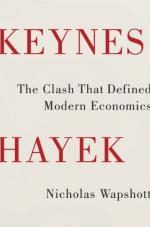|
This section contains 759 words (approx. 3 pages at 300 words per page) |

|
John Neville Keynes (1852–1949) was for a large part of his long life registrar of the University of Cambridge. His first contribution to logic was an article in Mind in 1879, in which he defended formal logic as a substantial discipline distinguishable alike from the philosophical logic being pursued by the heirs of Kant and Hegel, from the "empirical" (largely inductive) logic developed by the heirs of J. S. Mill, and from the mathematical logic lately started on its career by Boole and De Morgan.
In 1884, Keynes's view of the subject was exhibited in greater detail in the first edition of his Studies and Exercises in Formal Logic. This work dealt, in the traditional manner, successively with terms, judgments, and syllogisms, but it had a fourth part in which essentially Boolean material was presented as a logic of categorical propositions with conjunctive, disjunctive, and negative terms and conjunctive and disjunctive...
|
This section contains 759 words (approx. 3 pages at 300 words per page) |

|


